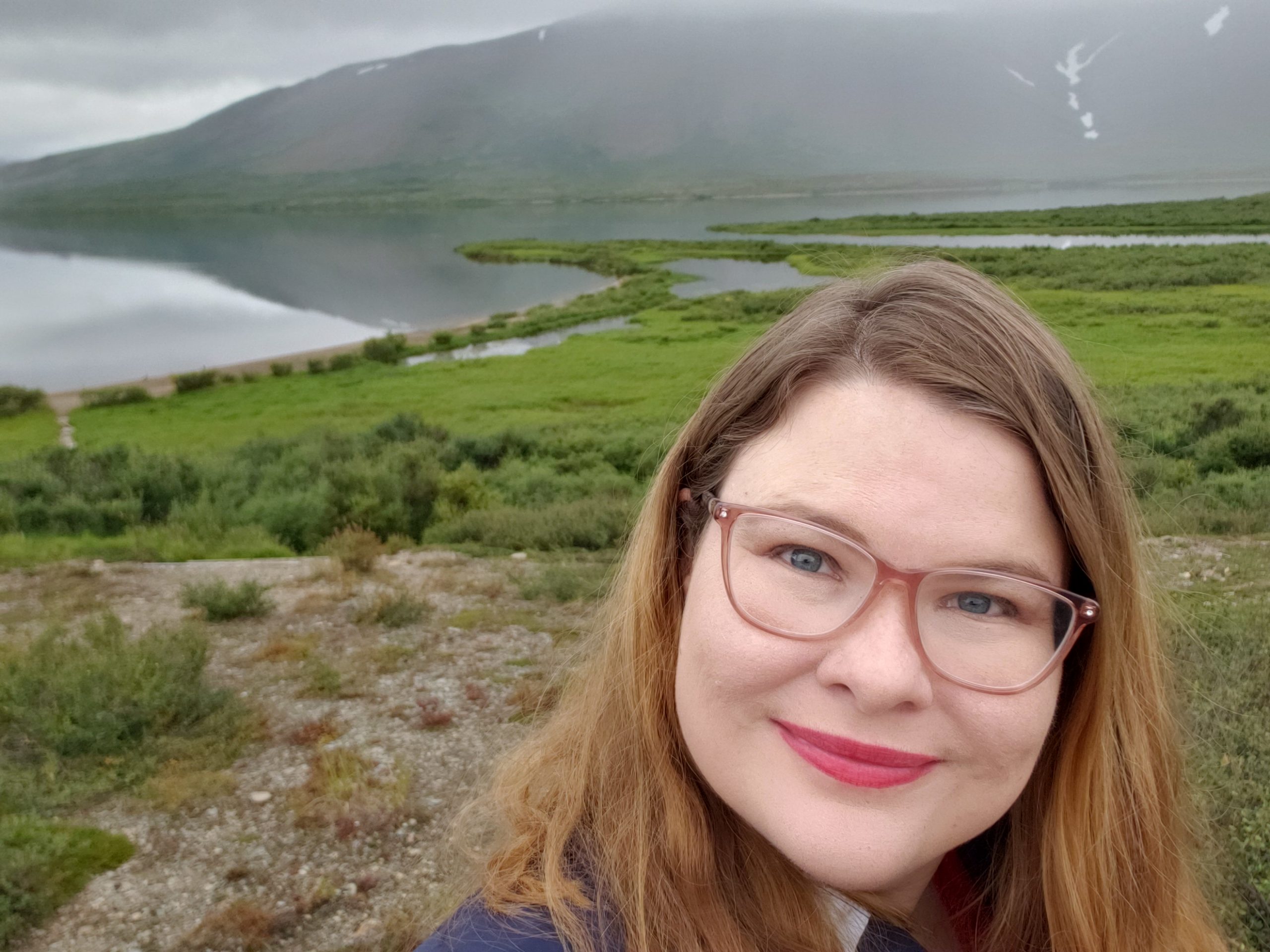By: Rev. Laura Kuntz
Hosanna! Within this word exists many possibilities. We hear this word shouted from the crowds as Jesus rides into Jerusalem. Within this word we hear the cries of the people who needed Jesus to save them. We also hear it as a word of praise as people place their trust in where Jesus is headed. Within our worship reflect these means within this one word alongside thousands of other words used to express our heart to God.
We debate about what words we use very strongly. Words are important, but the meaning behind them and the actions behind them make them real. We can and should embrace the words we need to use to describe our experience. We can claim the word queer as part of our identity even though it was once used against us. We can use a person’s correct pronouns and validate their whole selves. We can name the sins of homophobia, white supremacy, and patriarchy.
This year on Palm Sunday as I say Hosanna, I’m praying for God to save us. To save our world from the racism that keeps all people from experiencing the kin-dom of God. To save us from this pandemic that has disrupted the lives of many and harmed the most vulnerable. To save us from feeling hopeless when we aren’t optimistic about the future. I’ll also seek comfort in that same word and use it to praise God because I believe God is working on our world. When we feel defeated by what is going on in our lives and in the world we know God is there. God is listening.
God hears our cries and knows our struggles. Despite the ways we seem to habitually mess things up, God believes that the whole world is worthy of love. God came to earth because of this love. To preach, teach, and heal because we are God’s beloved. We can call out to God in whatever way we need and God is there. We can remind each other of this love when we don’t feel it ourselves. It has been with us in past struggles and will be present into the unknown of the future.
Hosanna in the highest,
We cry to you for help with such a great list of needs. Can you handle them all? Is there an end in sight to a pandemic, and all the injustice in our world?
Hear our cries, our questions, our concerns.
Help us to remember your promise to be with us.
We ask that we could feel your presence in our world.
Save us from both ourselves and the injustices of this world. Help us to see your kin-dom.
Amen.
 The Rev. Laura Kuntz (she/her/hers) is serving as interim pastor and lives in Cleveland, Ohio with her wife and two dogs. Something that brings her joy is being a part of the Buy Nothing Project in her neighborhood, where people give to their neighbors out of their abundance. Her favorite items she has received were a small Ikea greenhouse and a box of old trophies she used to make a hat hanger for a friend. She loves to give away plants and anything that someone has a need for.
The Rev. Laura Kuntz (she/her/hers) is serving as interim pastor and lives in Cleveland, Ohio with her wife and two dogs. Something that brings her joy is being a part of the Buy Nothing Project in her neighborhood, where people give to their neighbors out of their abundance. Her favorite items she has received were a small Ikea greenhouse and a box of old trophies she used to make a hat hanger for a friend. She loves to give away plants and anything that someone has a need for.


 justice flows from the sacraments as they overwhelm us and bring us to life.
justice flows from the sacraments as they overwhelm us and bring us to life.
 One of the blessings of ecumenical relationships is the sharing of language and phrases that bring richness to our faith lives. Add to that the gorgeous vocabulary of the LGBTQIA+ family, and our attempts to harness faith in words get a little more productive! For me, to hear the words at holy communion from our Episcopal siblings, “Behold who you are; become what you receive,” centers me so firmly in the reality of the body of Christ, I have a hard time loving other welcomes to the table. “Consume me and be me!” Jesus says. And we do that in community, heading out the door to bear the love of Christ to the world, loud and unabashedly clear about who we are. So when we, as a community, step into the temple courtyards with Jesus in this week’s gospel text, I wonder if the words have a similar transformative strength in them. After flipping the tables in a fit of rage that we in our polite little circles have attempted to calm with the language of “righteous anger” or less violent images than our meek and mild Jesus getting pissed at those who were destabilizing the very systems intended to gather in the nations at the feet of God, some change comes to the temple.
One of the blessings of ecumenical relationships is the sharing of language and phrases that bring richness to our faith lives. Add to that the gorgeous vocabulary of the LGBTQIA+ family, and our attempts to harness faith in words get a little more productive! For me, to hear the words at holy communion from our Episcopal siblings, “Behold who you are; become what you receive,” centers me so firmly in the reality of the body of Christ, I have a hard time loving other welcomes to the table. “Consume me and be me!” Jesus says. And we do that in community, heading out the door to bear the love of Christ to the world, loud and unabashedly clear about who we are. So when we, as a community, step into the temple courtyards with Jesus in this week’s gospel text, I wonder if the words have a similar transformative strength in them. After flipping the tables in a fit of rage that we in our polite little circles have attempted to calm with the language of “righteous anger” or less violent images than our meek and mild Jesus getting pissed at those who were destabilizing the very systems intended to gather in the nations at the feet of God, some change comes to the temple.  Rev. Leslie O’Callaghan(she/her) lives in Denver with her spouse Asher, their dog Francis, and three kitties who make life magical. She serves as Assistant to the Bishop for Faith Formation and Candidacy in the Rocky Mountain Synod, has attempted to learn the accordion and bluegrass banjo during the pandemic, and loves to find rest in the kitchen creating something delicious, usually with butter.
Rev. Leslie O’Callaghan(she/her) lives in Denver with her spouse Asher, their dog Francis, and three kitties who make life magical. She serves as Assistant to the Bishop for Faith Formation and Candidacy in the Rocky Mountain Synod, has attempted to learn the accordion and bluegrass banjo during the pandemic, and loves to find rest in the kitchen creating something delicious, usually with butter.